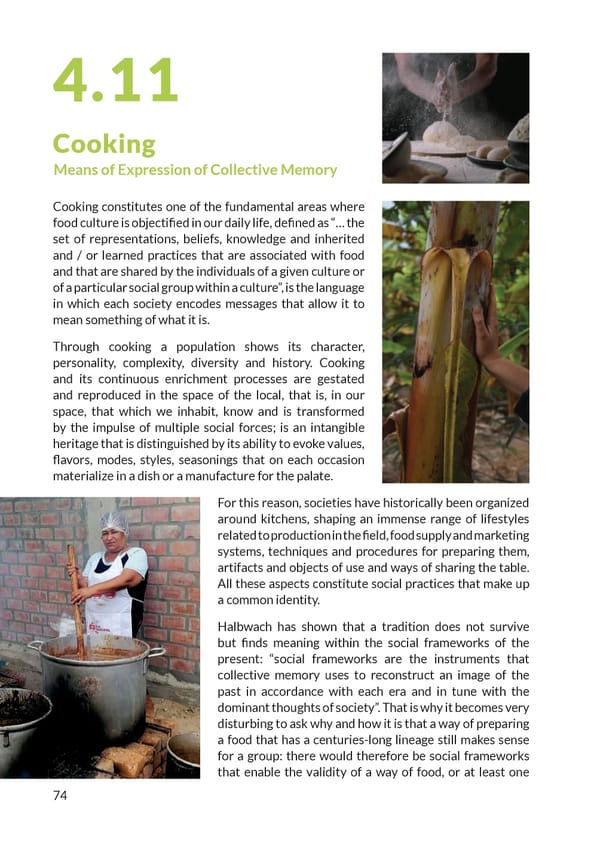4.11 Cooking Means of Expression of Collective Memory Cooking constitutes one of the fundamental areas where food culture is objectified in our daily life, defined as “… the set of representations, beliefs, knowledge and inherited and / or learned practices that are associated with food and that are shared by the individuals of a given culture or of a particular social group within a culture”, is the language in which each society encodes messages that allow it to mean something of what it is. Through cooking a population shows its character, personality, complexity, diversity and history. Cooking and its continuous enrichment processes are gestated and reproduced in the space of the local, that is, in our space, that which we inhabit, know and is transformed by the impulse of multiple social forces; is an intangible heritage that is distinguished by its ability to evoke values, flavors, modes, styles, seasonings that on each occasion materialize in a dish or a manufacture for the palate. For this reason, societies have historically been organized around kitchens, shaping an immense range of lifestyles related to production in the field, food supply and marketing systems, techniques and procedures for preparing them, artifacts and objects of use and ways of sharing the table. All these aspects constitute social practices that make up a common identity. Halbwach has shown that a tradition does not survive but finds meaning within the social frameworks of the present: “social frameworks are the instruments that collective memory uses to reconstruct an image of the past in accordance with each era and in tune with the dominant thoughts of society”. That is why it becomes very disturbing to ask why and how it is that a way of preparing a food that has a centuries-long lineage still makes sense for a group: there would therefore be social frameworks that enable the validity of a way of food, or at least one 74
 MemoryHandbook new Page 73 Page 75
MemoryHandbook new Page 73 Page 75